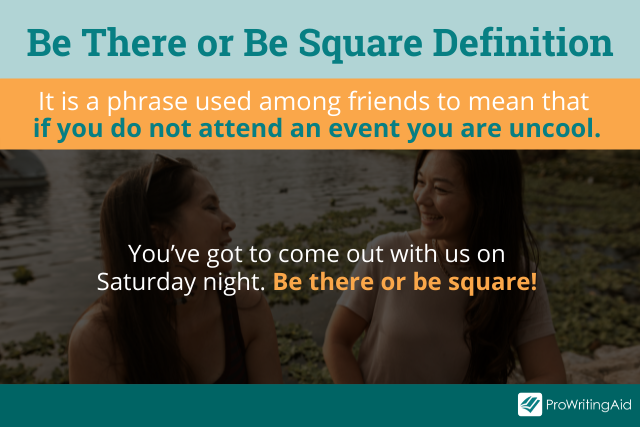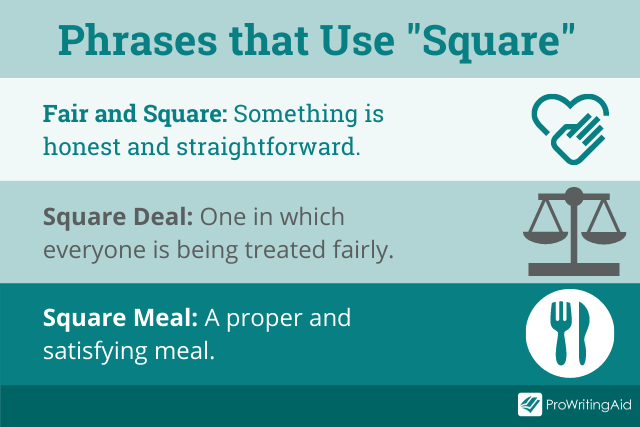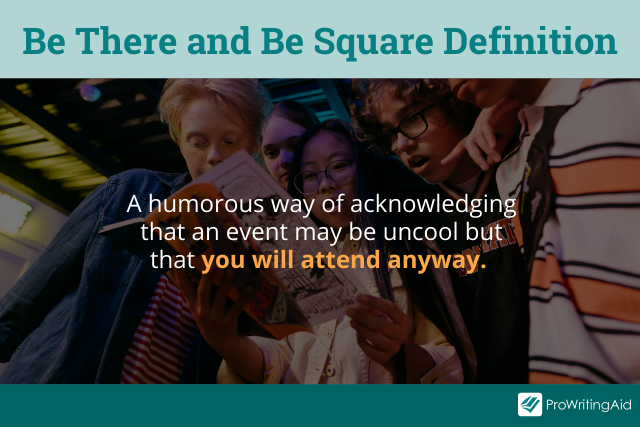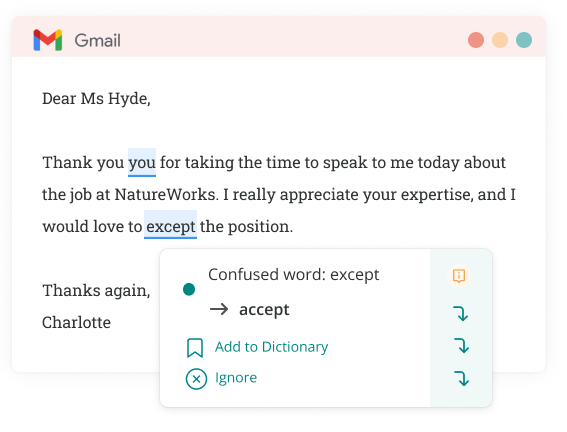
“Be there or be square” is an idiomatic expression that means that if someone does not attend an event they are uncool.
It is an idiom, which means that it has a figurative meaning that is at odds with its literal meaning. If someone tells you to “be there or be square,” they are not suggesting that you are going to turn into a literal square if you do not go somewhere.
As with all idioms, this phrase was established by common usage stemming from a particular event or time period. This article will explain the history and meaning of the phrase as well as provide some usage examples.
What Does Be There or Be Square Mean?
Be there or be square means that if you don’t go “there” you are not in the know and therefore boring. In this phrase, “square'' means basic and uncool.

It is not an insult per se but is instead used to emphasize how cool “there” is. The aim is to encourage someone to go by suggesting that they could miss out on something really fun by not going.
Be There or Be Square in the Dictionary
Although the meaning of “be there or be square” is widely accepted, it does not appear in any traditional dictionary.
However, it did make its way into the Urban Dictionary, which is a crowdsourced resource, in 2015.
The Urban Dictionary regularly lists words, current trends, and phrases years before they appear in official dictionaries. Notable examples include amirite (short for am I right) and adulting (carrying out the duties of an adult).
As a result, the phrase “be there or be square” could be set to enter formal dictionaries in the future.
The Origin of Be There or Be Square
The phrase “be there or be square” originated from the 1940s jazz scene, when it was used to refer to someone who is boring and not interested in jazz music .Over time, the usage of the phrase broadened to encompass any event that the speaker views as being cool.
When it is used now, it automatically implies that the speaker’s views are law and anyone who disagrees is dull or out of touch.
Before the 40s, square was used to describe a person or situation that was straightforward and fair. This meaning is likely derived from the perfectly symmetrical edges of squares.
Although the word has obtained additional meanings, it still maintains the above one in some common phrases.

- When something is fair and square it is honest and straightforward.
- A square meal is a proper and satisfying meal.
- A square deal is one in which everyone is being treated fairly.
Examples of Be There or Be Square
Be there or be square is an informal expression used primarily among friends in amiable banter. Here are some everyday examples of “be there or be square” in speech.
- Haiden is hosting the biggest birthday party of the year this Friday. It is definitely a case of be there or be square.
- This new band is playing at the coffee shop tonight and Natalia said “be there or be square!” Do you think we should go?
- You’ve got to come out with us on Saturday night. Be there or be square!
- “Be there or be square!” she called after I left saying that I had to check my evening’s schedule.
What Does Be There and Be Square Mean?
Sometimes you can be there and be square, which is a humorous way of acknowledging that an event may be uncool but that you will attend anyway.

It is an endearing phrase exchanged between self-proclaimed geeks before attending an event that most people would consider to be uncool, like Comicon.
When Can You Use Be There or Be Square?
As we have already covered, be there or be square is an informal phrase so should only be used in informal writing.
If you want to persuade a friend to attend an event, you can confidently tell them to “be there or be square” but you shouldn’t say the same to a colleague about a meeting.
Always check that your idiom is suitable for the situation to make sure you never get caught red-handed.
Ready to Improve Your Writing? Try ProWritingAid.


